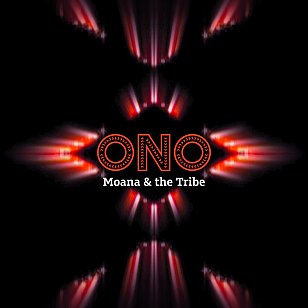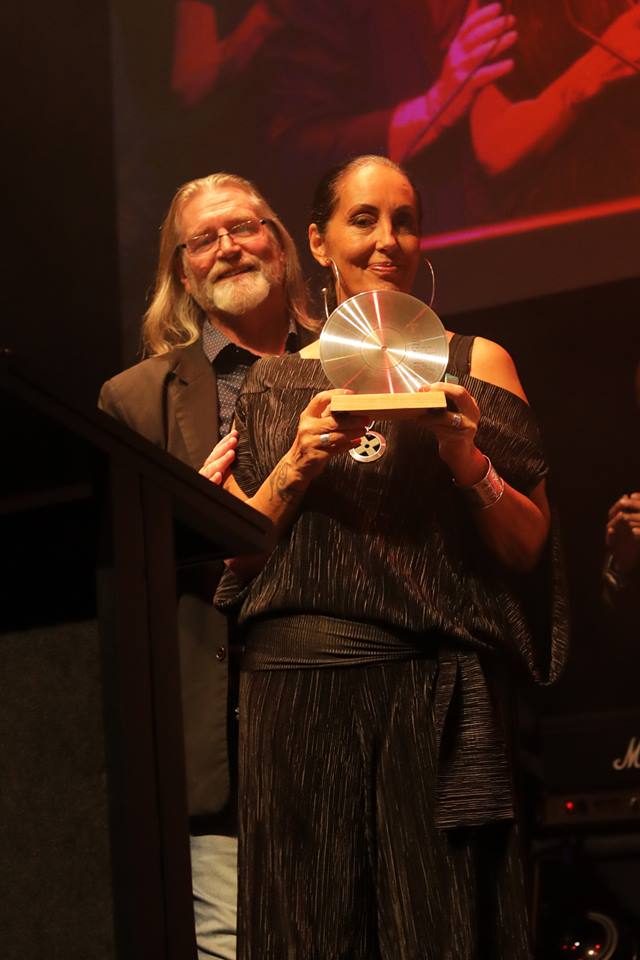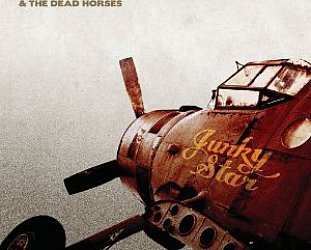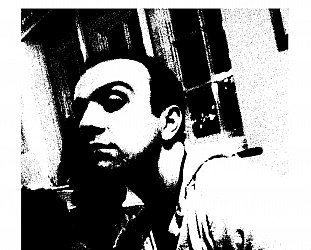Graham Reid | | 2 min read
Tū, with Jani Lauzon

It was so long ago when I first met Moana Maniapoto (Ngāti Tūwharetoa, Te Arawa) -- then Moana Jackson -- that I can only guess it must have been the late Eighties. It was at some unprepossessing venue in South Auckland and for the life of me I can't remember what it was all about.
Maybe we were judging a band competition?
I just remember her then-husband Willie Jackson being an enthusiastic hustler and browbeating me into writing something about her.
I'm pretty sure I didn't at that time because there was no “story” but since then I have written about her for the Herald, Billboard, this website and any other forum I could find.
You could say I championed her music.
In 2019 I profiled her for audioculture, the same year I – at her request – spoke at the induction of the 1993 Tahi album by Moana and the Moahunters into the Taite awards as a classic album.
 She's had numerous awards, not the least the New Zealand Order of Merit, Arts Laureate and welcomed into the New Zealand Music Hall of Fame.
She's had numerous awards, not the least the New Zealand Order of Merit, Arts Laureate and welcomed into the New Zealand Music Hall of Fame.
She hardly wants for attention although her albums – first with the Moahunters, then The Tribe from 2003 – never quite made the impact people like me think they deserve.
If there was a criticism of the albums it might have been for the stylistic diversity she brought: spoken word, lullaby waiata, political messages, thumping grooves, rap and reggae appeared on albums where taonga puoro sat alongside popular soul and te reo Māori was unapologetically foregrounded in a unique amalgam of consciousness haka-dub and trip-hop.
Ironically then, Ono – her sixth, with diverse indigenous artists from the global village – is the Tribe's most sonically coherent and integrated.
That's largely due to Paddy Free (of Pitch Black), an integral member of the Tribe, who gave electronica punch to songs like the exceptional Whole World's Watching on the previous album Rima.
It's been a decade since Rima because – aside from the logistics of recording far-flung artists sharing the issue of their language under threat – music took a backseat to social and political imperatives in Maniapoto's award-winning Te Ao with Moana current affairs programme on Whakaata Māori/Māori Television.
But Ono has been worth the wait because, aside from co-producer Free's integrated sound across six haunting pieces, the artist's voices blend so seamlessly with Maniapoto's.
With songwriting collaborator and te reo Māori advisor Scotty Morrison (Te Arawa) of the Tribe, Maniapoto dedicates Ono to “all disruptors, visionaries and transformers who fought to keep our languages alive”.
Āio Ana with Sámi singer Mari Boine – who Maniapoto first met at a Taranaki Womad festival – sets a meditative tone of spiritual lament over a subtle pulsing rhythm; Huakirangi – in Gadigal from Aboriginal singer and language researcher Shellie Morris – adopts an increasingly forceful reggae lope and angular dubadelic touches; Tōku Reo with breathing exhalations finds common ground celebrating language between the yearning voice of indigenous Taiwanese singer Inka Mbing, Maniapoto's distinctive voice and Morrison's authoritative profundity.
Kaumakaiwa from Hawai'i brings keening mystery to Free's wobbling, dubby echoes on Ātahu and the most unexpectedly successful collaboration has Scotland's Megan Henderson of the band Breabach soaring in Gaelic on Maiea with the dark, chanting counterpoint by Morrison.
 A standout is the thrilling urgency of Jani Lauzon from Canada's First Nation people on Tū which beams across centuries and cultures.
A standout is the thrilling urgency of Jani Lauzon from Canada's First Nation people on Tū which beams across centuries and cultures.
Ono is – important messages aside – an uncommonly arresting album of dub electronica-cum-world music.
Can't wait for Paddy's remixes.
.
This album is at Apple iTunes and on Spotify. It is also available on vinyl.





post a comment